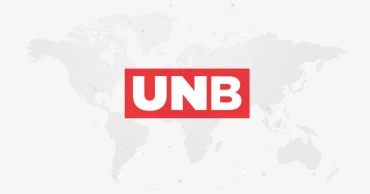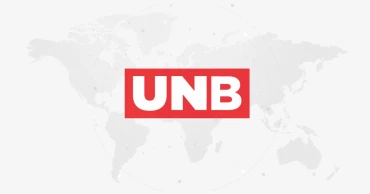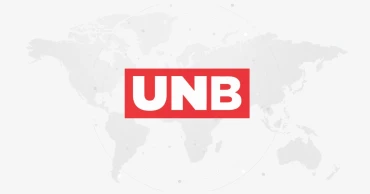Cashless payment
Bangladesh moves towards cashless society: PM Hasina on launching Taka Pay card
Prime Minister Sheikh Hasina on Wednesday (November 01, 2023) said her government seeks to build a cashless society in a bid to reduce corruption, expedite development and ease revenue collection.
“When we will be able to build the cashless society it will curtail corruption. The development of the country will be expedited and the revenue collection will be eased,” she said.
The prime minister said this while inaugurating local currency card ‘Taka Pay’, first of its kind in the country, from her official residence Ganabhaban. She was connected virtually with headquaters of Sonali Bank, City Bank and Brac Bank.
Sheikh Hasina said that as an independent and sovereign country, Bangladesh’s financial system has to be independent and sovereign for reducing dependency on others.
PM Hasina launches Taka Pay, first-ever local currency card, to save costly dollars
She put emphasis on data security of every holder of the newly introduced debit card.
“I hope that the security system of this network will be well-protected. We have to pay special attention to this. Foolproof firewall has to be there,” she said.
She said that this Taka Pay card will be a groundbreaking step for building the cashless society in Bangladesh.
“We will not be dependent on others. We will use our money in our country, we will try to connect this system with otheir countries. We must not be dependent on any single hard currency,” she said.
"Today I'm very happy," said the prime minister terming the own currency card as a landmark step for the country.
She mentioned that the cards which are being used by the people are operated by the foreign companies.
“No more foreign currency spending after introduction of Taka Pay card”," she said.
Hasina spoke about her government’s plan to introduce international transactions through Taka Pay in future.
She also underscored the importance of bringing everyone under banking services towards establishment of a cashless society.
PM Hasina to launch 'Taka Pay' card Tuesday: BB
The premier said every citizen of the country should be brought under the banking service.
Directing the Bangladesh Bank to focus on establishing good governance in the banking sector, the PM said, the role of central bank is very important in establishing a cashless society.
“So, special attention should be given to ensure that the service in the banking sector is more fair alongside good governance,” she added.
PM Hasina asked the officials concerned to provide training and up to date information to the people so that they can use this Taka Pay card easily without any hassle in their daily payment.
The card is be issued by state-owned Sonali Bank and privately-owned City Bank and BRAC Bank in collaboration with the central bank.
'Taka Pay' will provide the same service nationally through the use of 'The National Payment Switch of Bangladesh', an electronic payment platform operated by the BB.
Election will be on time, BNP can’t stop it, says PM Hasina at press conference
2 years ago
PM Hasina launches Taka Pay, first-ever local currency card, to save costly dollars
Prime Minister Sheikh Hasina on Wednesday (November 01, 2023) launched local currency card Taka Pay to reduce dependency on international card schemes like Visa and Mastercard and save much-needed US dollars.
Bangladesh Bank introduced the card, first of its kind in the country.
PM Hasina inaugurated the card from her official residence Ganabhaban. She was connected virtually with the headquarters of state-owned Sonali Bank, private City Bank and Brac Bank.
The three banks have been given responsibility to issue the Taka Pay card in collaboration with the central bank.
'Taka Pay' will provide the same service nationally through the use of 'The National Payment Switch of Bangladesh', an electronic payment platform operated by the BB.
Initially, the card can be used within the country. Later the central bank will introduce Taka-Rupee card which can be used for shopping in neighbouring India.
Electronic transfer of taka is done through Visa and MasterCard payment networks of business institutions including banks and other financial institutions.
These entities offer branded payment processing services for credit, debit, and prepaid cards. Domestic card 'Taka Pay' will provide the same service, the BB sources said.
It can be used abroad once foreign banks and institutions partner with the platform. It will reduce the cost of foreign exchange. Because foreign companies have to spend a lot of money on service charges.
From the beginning, this card can be used at all ATMs, points of sales and online platforms in the country.
PM Hasina to launch 'Taka Pay' card Tuesday: BB
Initially it will be used as a debit card but in the future Taka Pay credit card will also come.
Magnetic strip is used for security of this card. But now the new EMV technology with added security has been introduced in all bank cards. Gradually Taka Pay card will also be introduced with EMV technology.
Paris-based consultancy Fime developed the card.
Bangladesh’s neighboring countries also have their currency cards. India has card 'Rupee', Pakistan 'Pakpay', Sri Lanka 'Lonkapay'. Saudi Arabia has 'Mada'.
Election will be on time, BNP can’t stop it, says PM Hasina at press conference
At the outset, a video documentary on the Taka Pay was screened.
Two freedom fighter customers of Sonali Bank withdrew money from City Bank's ATM using Taka Pay Card.
Central bank governor Abdur Rauf Talukder was present among others at Ganabhaban.
Prime Minister's Principal Secretary M Tofazzel Hossain Miah moderated the function, while BB Governor Abdur Rouf Talukder delivered welcome address. BB Executive Director Mezbaul Haque presented different aspects of the national card scheme “TakaPay”.Sonali Bank Managing Director Afzal Karim, Brac Bank Managing Director Selim RF Hossain and City Bank Managing Director Mashrur Arefin at their offices demonstrated the usage of TakaPay card, online payment and withdrawal of money from ATM where the users received the services.
PM Hasina describes as successful her visit to Belgium for Global Gateway Forum
2 years ago
Bangla QR Payment: The Contactless Payment System of EBL
The idea of a cashless society is not new. In this day and age, technological innovations and new methods of payment are aiming to replace the age-old monetary barter system through cash. To provide easier everyday transactions, EBL’s launched Bangla QR payment solution in its EBL SKYBANKING app on September 02, 2020, . This comes in line with debit cards, credit cards as well as the MFS in Bangladesh. The specialty of the new system is that it focuses on contactless payment using Quick Response or QR code technology. Traditional banks and financial institutions will now be able to access contactless, interoperable transaction systems.
Importance of Cashless Payment System
The importance of a cashless payment system is immense considering several factors. There is a long-standing idea that “Cash is King”. While cash is still the major economic transactor in the world, its benefits fall much short compared to the cashless payment system.
The reason is primarily because of the drawbacks of using cash. A physical currency makes way for easier counterfeiting. It is also susceptible to being stolen.
Read:Agricultural Loans in Bangladesh: Banks Offering Loans to Farmers and Farms
There is also the sunk cost of transporting, counting, and storing physical currency. There is also a bar on the international transaction as local currencies don’t work for foreign payments. Cash-based economies are also susceptible to a higher risk of corruption.
All of these drawbacks of a cash-based economy can be negated by the introduction of a cashless payment system.
What is Bangla QR by EBL? How Does it Work?
Bangla QR is an interoperable QR-based payment solution. It’s a step forward in the cashless and contactless payment system in Bangladesh. The payment system is based on the mVisa platform which brings all the utilities and services of Visa without the need of a POS machine.
Though QR code-based transactions have been happening in Bangladesh, these transactions aren’t directly regulated by the central bank. Rather the transactions are carried out by the own regulation of fintech services like bkash and Nagad.
Read:Best Business Ideas Amidst the Pandemic and New Normal
It's important to note that none of the existing contactless payment systems of Bangladesh are a direct-service of any bank. Rather it's limited to fintech organizations. Bangladesh Bank created a regulatory guideline for the contactless payment system. It was done to make the system more streamlined. And Bangla QR is the direct product of the new policy guideline.
Bangladesh bank opted for the merchant presented QR code transaction or EMVQRCPS. It lets a user scan a QR code displayed by the merchant and make instant payments.
Read Digital Currency: Benefits and Risks of the Cashless Economy in Bangladesh
Banks and lenders are exclusively dependent on Point of Scale (POS) for payment gateway through their card or internet banking app. The internet banking app is also designed for internal and external account fund transfer rather than merchant payment. The Bangla QR will help to eliminate the need for POS machines and bring the lenders hand in hand with the MFS in terms of merchant payment.
EBL was the first bank to adopt the Bangla QR as a payment option back in 2020. This is the first major private bank of Bangladesh that has opted for the platform as a payment solution. However, it wasn’t just aimed at going cashless.
Read:How to Test and Validate Your Startup Idea?
Potentials of Bangla QR by EBL
The managing director of EBL, Ali Reza Iftekhar thinks that this new horizon of payment option will be a great addition to ensure health safety by going contactless during this troubled time of the pandemic. The MFS sector itself brought banking to a huge chunk of the unbanked in the country. Now leading financial institutions and lenders can play a key role to make their services more easily accessible like that of the MFS.
From the context of Bangladesh, beyond the existing mobile financial services there are other online monetary services like debit cards, credit cards, e-wallet, bank accounts, and prepaid cards. Bangladesh Bank aims to create a uniform payment solution for all these services. The aim is also to include the MFSs to better streamline the cashless payment systems and bring efficiency. Rather than having a multiple QR code option, it will be a one for all system.
Read Renowned online payment gateways in Bangladesh for domestic, international transactions
There are about 15.99 Lac credit cards and over 1.93 crore debit cards in circulation in the country. Out of them, over 80% are based on the Visa platform. There is a huge opportunity here for all the banking institutions to tap into this new payment system. In recent years, people’s banking habits are changing. As more and more people get initiated with the digital transaction, the service is expected to be even more popular among the youths.
EBL itself has over 5 Lac debit cards and 1.6 Lac debit cards in circulation. Initially, the bank plans to work with 2 to 3 thousand merchants. Sequentially they plan to include more merchants and sectors within this payment system.
Read:Women Loans in Bangladesh: Best Schemes for Female Entrepreneurs
The Emergence of the Cashless Payment System in Bangladesh
Even though the pandemic has accelerated the use of a cashless payment system in Bangladesh, the system itself isn’t new. A cashless payment system, specifically the QR code-based transactions came into Bangladesh through the hands of the MFS.
A record 40 million users are registered in the network of Nagad, one of the leading MFS of Bangladesh. The company has a daily transaction of over 400 crores. bKash is also another major player in the sector with over 2.2 million registered customers.
The services have been especially popular among the youths due to the seamless and instantaneous performance of cashless payments.
Read Fintech MFS: Best Mobile Financial Services in Bangladesh
However, almost 71% of the overall economic transactions still occur in the traditional cash system. As a country, Bangladesh still has a long way to go to properly implement the cashless payment system. However, steps like the MFS and Bangla QR are making the process increasingly simple and more penetrable to the general masses.
Final Thoughts
Bangla QR is a positive step towards making Bangladesh a cashless society. The contactless payment system offers a huge opportunity for the banks to compete with the MFS in retail transactions. The increased competition will only help to make the transaction process more seamless as well as open up new opportunities. The change in people's transaction habits won't come overnight. However, it's still a significant leap towards digital economic growth.
Read Best Credit Cards in Bangladesh: A Comparative Analysis
4 years ago





